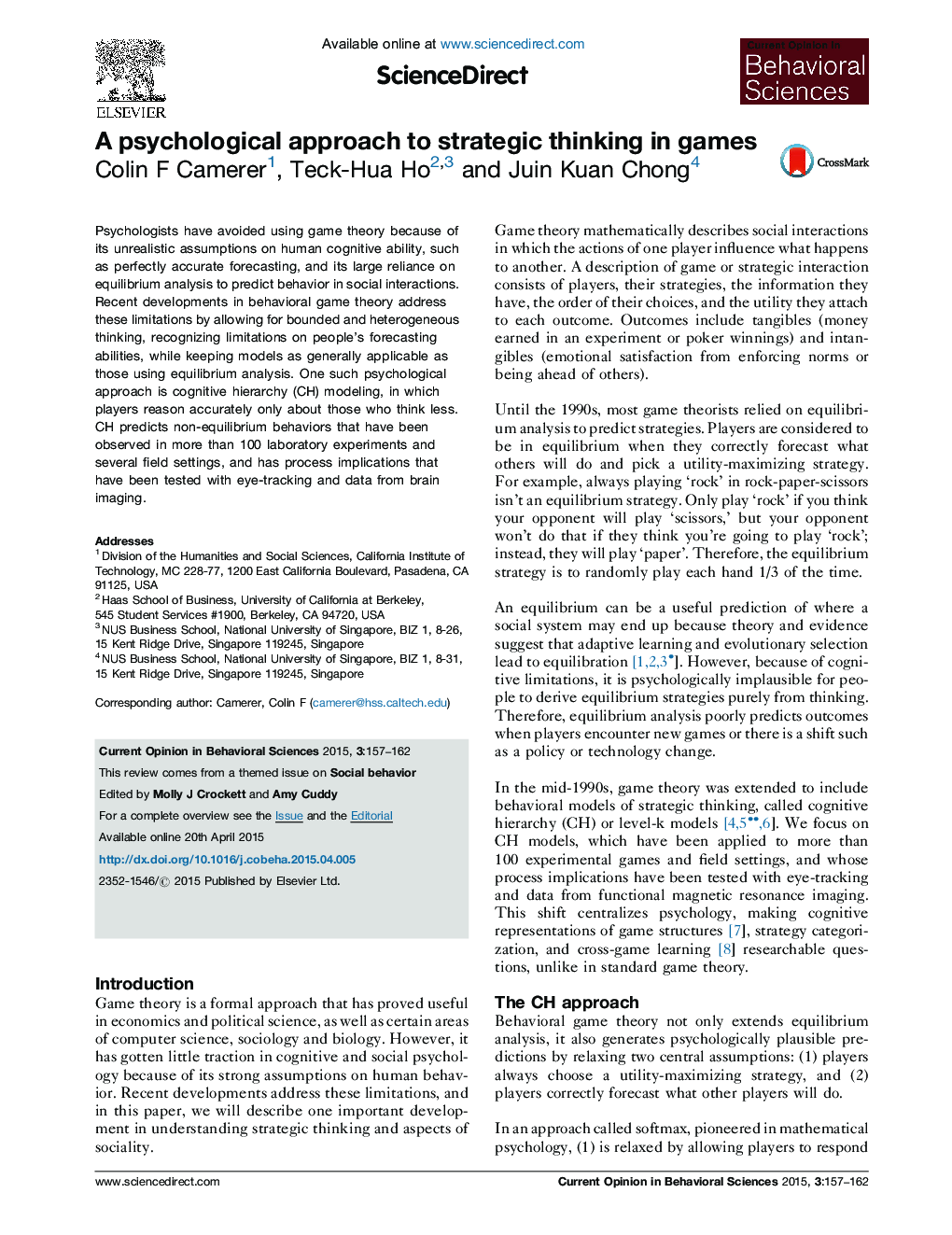| Article ID | Journal | Published Year | Pages | File Type |
|---|---|---|---|---|
| 4316402 | Current Opinion in Behavioral Sciences | 2015 | 6 Pages |
•Unlike psychology, game theory assumes people have unlimited cognitive abilities.•Game theory assumes people forecast accurately what others do, contrary to evidence.•CH models interaction of people with different cognitive abilities in games.•CH fits over 100 lab and field data sets, as well as eyetracking and fMRI data.
Psychologists have avoided using game theory because of its unrealistic assumptions on human cognitive ability, such as perfectly accurate forecasting, and its large reliance on equilibrium analysis to predict behavior in social interactions. Recent developments in behavioral game theory address these limitations by allowing for bounded and heterogeneous thinking, recognizing limitations on people's forecasting abilities, while keeping models as generally applicable as those using equilibrium analysis. One such psychological approach is cognitive hierarchy (CH) modeling, in which players reason accurately only about those who think less. CH predicts non-equilibrium behaviors that have been observed in more than 100 laboratory experiments and several field settings, and has process implications that have been tested with eye-tracking and data from brain imaging.
